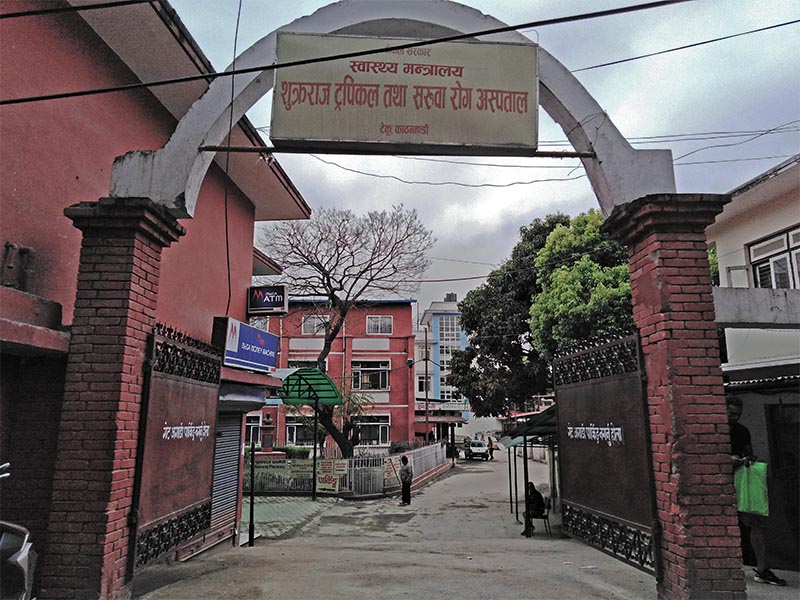‘Docs can prescribe anti-malaria, anti-HIV drugs to COVID-19 patients, if needed’
Kathmandu, March 30
Spokesperson for Sukraraj Tropical and Infectious Disease Hospital Dr Anup Bastola said the two coronavirus patients undergoing treatment at the hospital could be discharged before 14 days if they tested negative twice.
According to him, the condition of two patients — one male and one female — is normal and their swabs will be taken for tests after they stop coughing, one of the telltale signs of the deadly disease. The female patient was admitted to STIDH on March 23 and the male patient on March 25.
They showed mild symptoms when they were admitted.
COVID-19 patients should stay in home quarantine for 14 days even after they are discharged from hospital. Bastola said cured patients need to be more alert as there were reports of re-infection among cured patients.
Asked how his team was treating the two COVID-19 patients and what medications his team was giving them, Dr Bastola said, “ I cannot share the details of the medication due to ethical issues, but the normal thing that we do in such cases is constantly monitor the functions of the lungs, pulse rate and prescribe anti-viral medicines, paracetamol and painkillers if required,” he said. In severe cases, patients need to be put on ventilators but none of the COVID-19 patients in Nepal have developed such complications, he informed. There is no medical cure for COVID-19.
Director of Epidemiology and Disease Control Division under the Department of Health Dr Basudev Pandey said the government had endorsed the treatment procedures whereby doctors tending to COVID-19 patients could prescribe anti-influenza drugs, including Tamiflu-anti-malaria drug and even anti-HIV drug, as per the need to alleviate the patients’ conditions. He said doctors could also provide oxygen therapy to those patients whose oxygen saturation was found to be below normal level.
“Data gathered from other COVID-19-hit countries show that 80 per cent patients have mild symptoms. Ten per cent require oxygen therapy and 3.5 per cent patients needs to be admitted to ICU,” he said.
Dr Anup Subedee, a senior consultant- general medicine and infectious disease at HAMS, said majority of COV- ID-19 patients developed immunity power during treatment and they might not need to go to hospital. “At present, the government is admitting COVID-19 patients to hospital mainly to prevent transmission of the disease from infected persons to family members and others in the patients’ localities.
If the number of infected cases spikes, the government may advise patients with mild symptoms to stay in isolation at home,” he added.
According to Subedee, normally, the body of COVID-19 infected person develops immunity power to overcome the disease. Elderly people and people with pre-existing medical condition are at risk of developing complications during COVID-19 treatment.
He said there was no antibiotic or medicine to kill the virus and what doctors involved in the treatment of COVID-19 patients worldwide were doing was providing supportive treatment. “Supportive treatment means if a patient lacks oxygen or body fluid in his/her body, doctors will treat the patient to replenish oxygen and fluid,” Dr Subedee added.
“If a COVID-19 patient is put on ventilator for an extended period, damage done to his/ her body organs, including lungs, might not fully recover even if the patient is cured of the disease,” he argued.






